Images
Albert Mertz
21. 11. – 19. 12. 2015
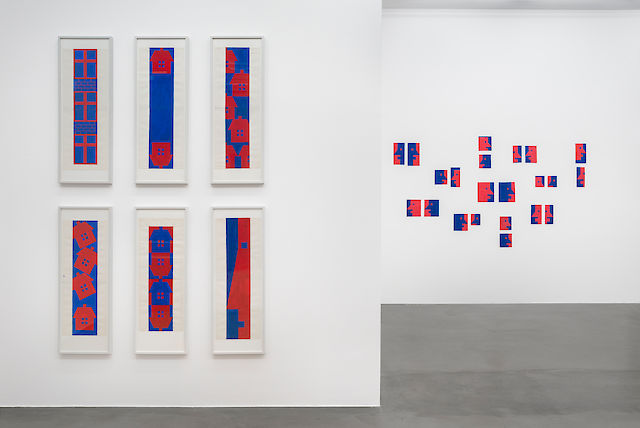
Albert Mertz, Installation view, 2015
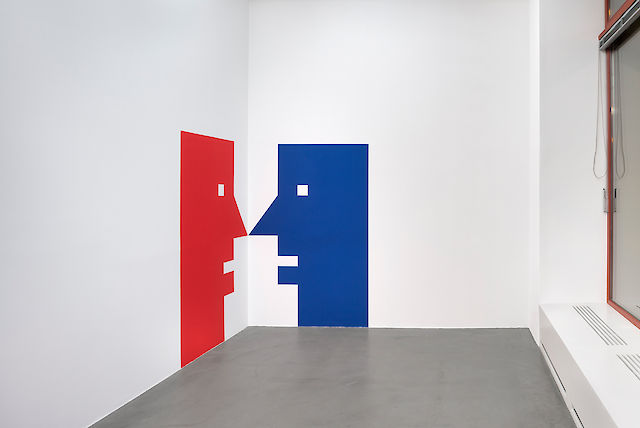
Albert Mertz, Installation view, 2015
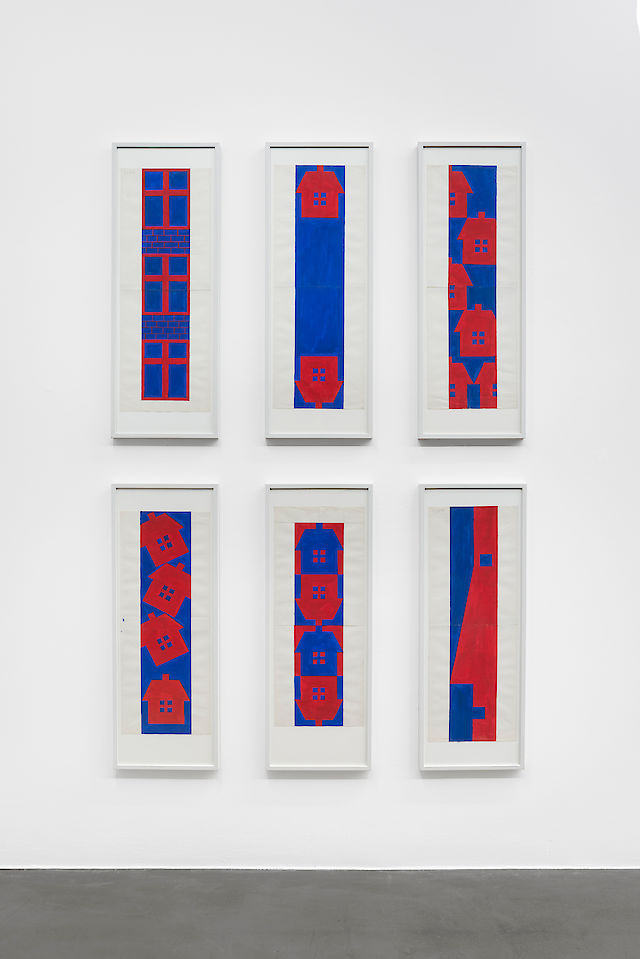
Albert Mertz, Untitled (windows), Untitled (two houses), Untitled( six houses), Untitled (four houses falling), Untitled (Four houses), Untitled (Long profile), All Gouache on paper, 1984
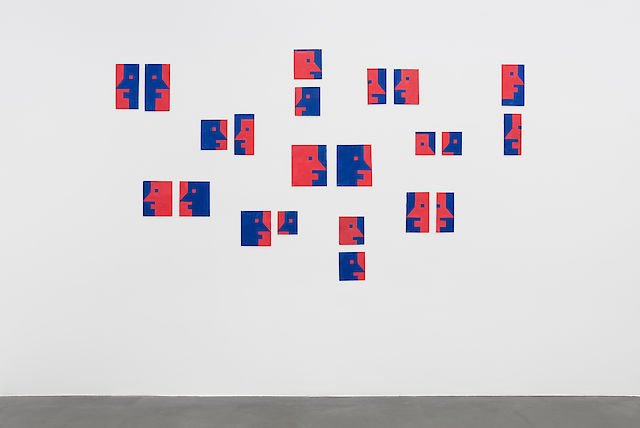
Albert Mertz, Installation view, 2015
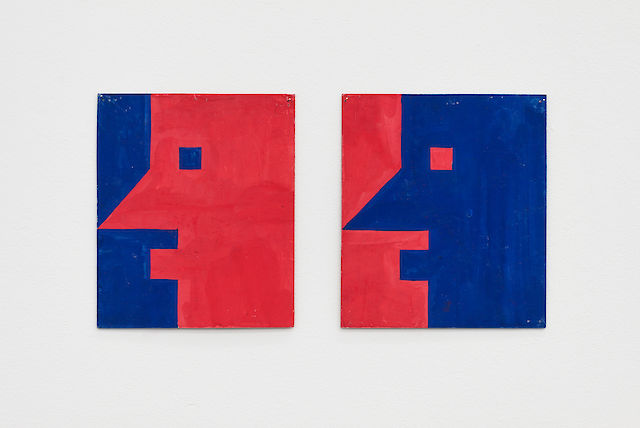
Albert Mertz, Untitled, Gouache on paper, 1980ies
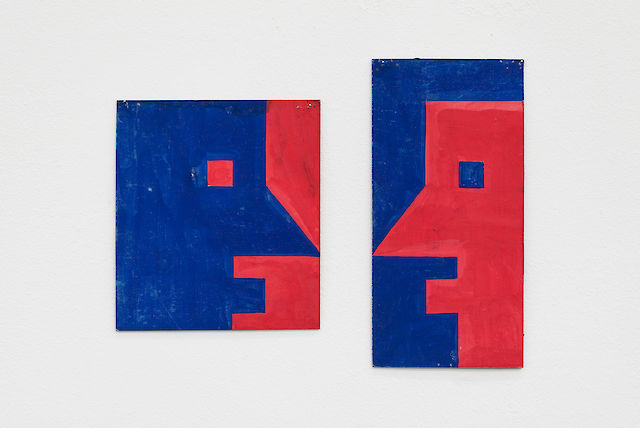
Albert Mertz, Untitled, Gouache on paper, 1980ies
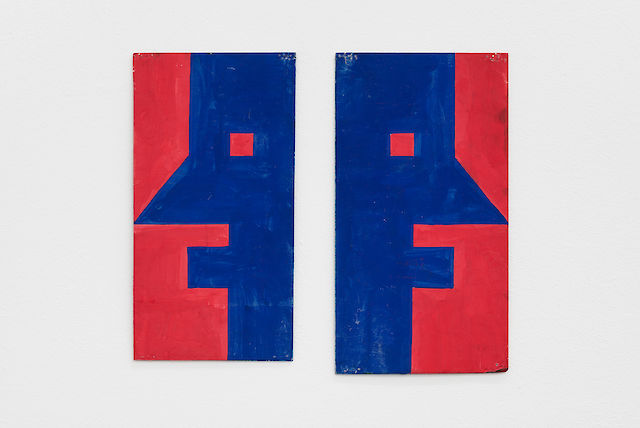
Albert Mertz, Untitled, Gouache on paper, 1980ies
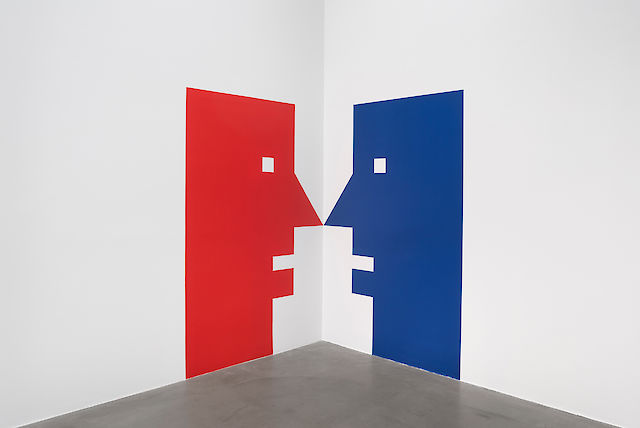
Albert Mertz, Untitled, Wallpainting, 1985
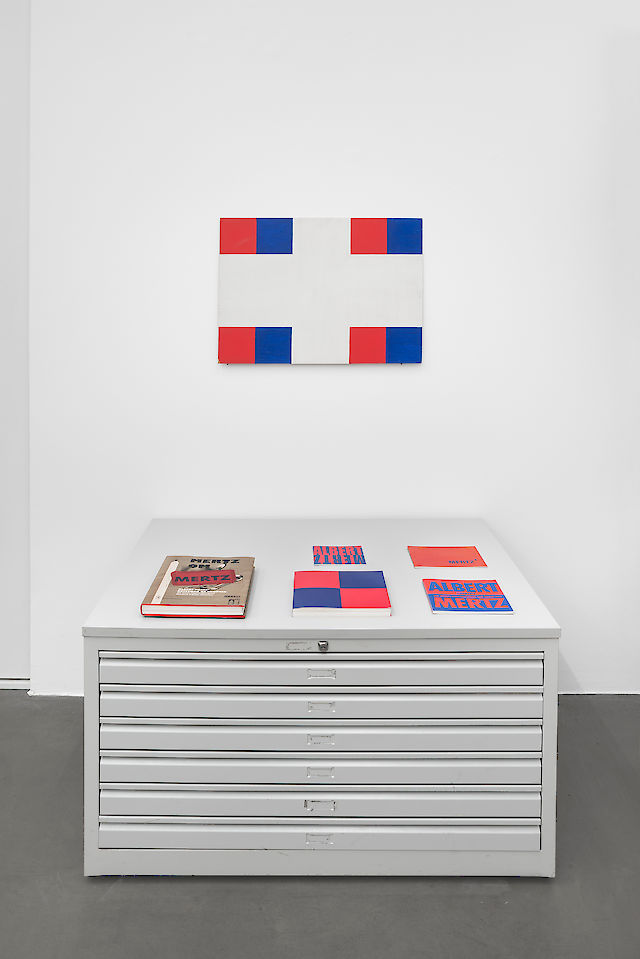
Albert Mertz, Untitled (r/b on white), Acrylic on Masonite, 1982
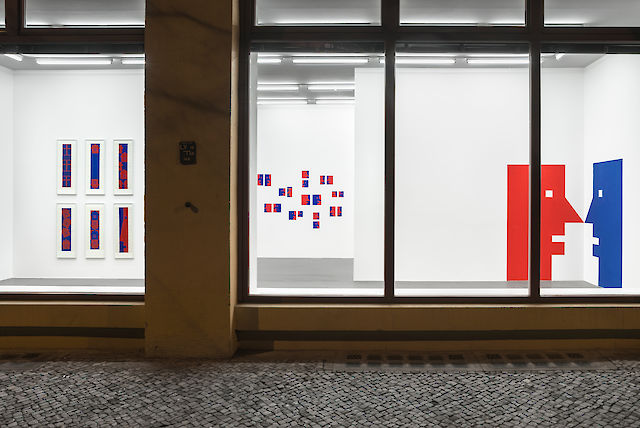
Albert Mertz, Installation view, 2015
Press Release
The works on view belong to Albert Mertz’ systematic experiments with the combination of the colours red and blue which he began in 1968, and termed the ‘red/blue proposition’. By 1971 this ‘proposition’ had found its final form: a red square to the left and a blue one to the right, creating a rectangle. A seemingly simple structure that Mertz’ continuously renegotiated in manifestations, playful variations, sketches, and works in almost every thinkable media. Or a pair of opposition of colours which are not supposed to radiate through any inner colouristic or formal qualities, but which largely function as a possible and arbitrary constellation.
The ‘red/blue proposition’ can be seen in line with Daniel Buren’s stripes, or Ad Reinhardt’s ‘ultimate paintings’, but Mertz countered the abstract purity of his self-imposed dogma with playfulness and humour. For example by introducing conventionalized figurative elements such as the house and the profile face – both recurring motives in his work. Two-dimensional figures, deprived of any depth or illusion. Furthermore Mertz’ work features an edgy trashiness, often embodied in poor materials such as reused cardboard, un-primed canvas, found objects, or masonite, that conveys a very haptic presence and messes up the pure image in a liberating way.
The ‘red/blue proposition’ was an ambivalent project to Mertz and it is within this ambivalence one may find its strength: on one hand it represented a break with the Modernist slate, by proposing a set of rules that liberated painting from previous trademarks such as expressivity, narration etc. On the other hand the proposition could not detach itself from being an investigation of painting as painting, its means and possibilities as a media.
We would like to thank Lone Mertz and her generous house on Gloenø for making this exhibition possible.